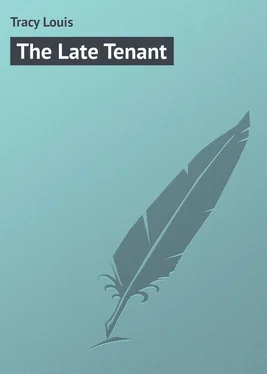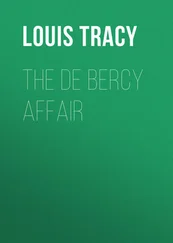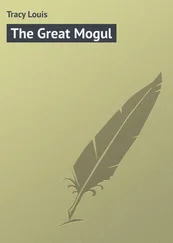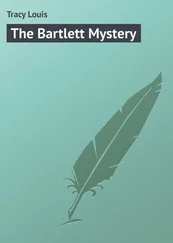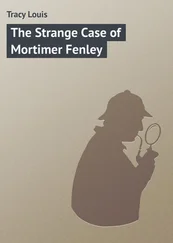Louis Tracy - The Late Tenant
Здесь есть возможность читать онлайн «Louis Tracy - The Late Tenant» — ознакомительный отрывок электронной книги совершенно бесплатно, а после прочтения отрывка купить полную версию. В некоторых случаях можно слушать аудио, скачать через торрент в формате fb2 и присутствует краткое содержание. Жанр: foreign_prose, на английском языке. Описание произведения, (предисловие) а так же отзывы посетителей доступны на портале библиотеки ЛибКат.
- Название:The Late Tenant
- Автор:
- Жанр:
- Год:неизвестен
- ISBN:нет данных
- Рейтинг книги:5 / 5. Голосов: 1
-
Избранное:Добавить в избранное
- Отзывы:
-
Ваша оценка:
- 100
- 1
- 2
- 3
- 4
- 5
The Late Tenant: краткое содержание, описание и аннотация
Предлагаем к чтению аннотацию, описание, краткое содержание или предисловие (зависит от того, что написал сам автор книги «The Late Tenant»). Если вы не нашли необходимую информацию о книге — напишите в комментариях, мы постараемся отыскать её.
The Late Tenant — читать онлайн ознакомительный отрывок
Ниже представлен текст книги, разбитый по страницам. Система сохранения места последней прочитанной страницы, позволяет с удобством читать онлайн бесплатно книгу «The Late Tenant», без необходимости каждый раз заново искать на чём Вы остановились. Поставьте закладку, и сможете в любой момент перейти на страницу, на которой закончили чтение.
Интервал:
Закладка:
“Oh, good heavens, how selfish and careless!” groaned David.
“Look here, young man, you come from Australia?” cried Miss L’Estrange, bouncing up from her chair. “In London people look after themselves and mind their own business, you see. We are as kind-hearted here as they are anywhere else, but we haven’t the same leisure to be kind. I tell you that if I had had the young lady’s address I should very likely have sent her the papers; but I didn’t, and that’s all; so don’t preach.”
“Well, better late than never,” said David. “Just give me the papers now, if you will, for I know her address – ”
“But where are the papers?” said Miss L’Estrange. “You don’t suppose that I keep papers – ”
“Don’t say that you have lost them!” pleaded David.
“I haven’t the faintest idea where the papers are! I was in a regular flurry, just moving out of the place; I had no interest in the papers. I glanced at them to see what they were, and, as far as I can remember, I threw them on the floor, or handed them to Jenny. It’s just possible that they are here now; but I shouldn’t fancy so. I’ll ask Jenny when she comes in.”
“Ah, you little know how much misery you might have saved a poor girl, if you had been a little more thoughtful,” growled David, and his wrath seemed to cow the woman somewhat. “This name of Mordaunt was the maiden name of your predecessor in the flat, who took the name of Gwendoline Barnes; Violet Mordaunt is her sister; Gwendoline is believed by all the world, including her own mother, to have been led astray, and the certificates which you handled so lightly would have cleared her name and lifted a world of grief from her poor sister’s heart.”
“Good Lord! How was I to know all that?” shrilled Miss L’Estrange, staring. “So it was Strauss that ruined Gwen Barnes? And this Violet Mordaunt was Gwen Barnes’s sister? Now you say it, they were something alike. I always put down that Strauss for a rotter – ”
“But why, since he married her?”
“Married whom? Strauss wasn’t the husband’s name on the marriage-certificate! Gwendoline Mordaunt was one, and the other, as far as I can recollect, was a foreign name, von Somebody or other – ”
“Von!” David also sprang to his feet. “Are you sure? or might it have been ‘van’? Oh, try now to remember! One is German, the other Dutch!”
“It might have been ‘van,’ or it might have been ‘von’ – you can’t expect one to remember after all these names. But I remember the woman’s name, Gwendoline Mordaunt, quite well, because the Gwendoline reminded me of Gwen Barnes, and the Mordaunt reminded me of Miss Violet Mordaunt; and the husband’s name, I know, was von or van Something, and so was the name of the child – a boy it was – I think its name was Henry – ”
“Hupfeldt?” suggested David, suddenly.
“Hupfeldt? It might have been Hupfeldt. I really can’t say now. I’ll ask Jenny.”
“At any rate,” said David, calming himself with a great effort, “we have that certain fact that Gwendoline Mordaunt was a wife. Good, to begin; most excellent, to begin. You can’t say where the marriage took place? No other information at all.”
“I’m sorry, since it is so mighty important, but I’m afraid not. However, I’ll do my best for you. I’ll see if I or Jenny can remember anything. When we left the flat, there was a great overflowing with my torn-up letters, and Jenny may have thrown the certificates on that grate, or the bits of them, or she may have dropped them on the floor, or, just possibly, she put them in her pocket and may have them still. She will be here in less than half an hour, so, if I may offer you a cigar, and a whisky and soda – ”
“You are very good. I won’t stay now, as I am in a hurry to do something. But, if I may come back – may I?”
“Modest request! As often as you please, and welcome. This is Liberty Hall, you know.”
“Thank you, I will, then. There is one thing I have to ask you. Could you point out to me Mr. Johann Strauss?”
“Of course, if I saw him. But I never knew where he lived, and have never seen him since the day I left the flat.”
“Well, that may come in time,” said David, putting out his hand; “and meantime you will do your best for me in finding out about the two certificates. Thank you for all your goodness, and I will be here again soon.”
“Good-by,” said Miss L’Estrange, “and I do hope you mean to give that Strauss a sound hiding some day. You look as if you could do it with one hand and pick your teeth with the other. It would be no more than he deserves.”
David ran down the flight after flight of stairs quicker than he had gone up.
“Now,” he thought to himself as he left the building with eager steps, “is my chance to give some joy!” Going into the first paper-shop, he wrote: “A well-wisher of Miss Mordaunt desires to assure her that it is a pretty certain thing that her sister Gwendoline was a duly wedded wife; the proofs of this statement may sooner or later be forthcoming.”
He put no signature to it, made haste to post it, and drove back to Eddystone Mansions. It had been wiser had he flattered Miss Ermyn L’Estrange by returning to her.
CHAPTER VI
THE WORD OF JOY
Not many guests were for the moment at No. 60A, Porchester Gardens, so that the Mordaunts, mother and daughter, who always stopped there during their visits to London, could almost persuade themselves that they were in their own home. In the good old days Mr. and Mrs. Harrod, the proprietors, had been accustomed to receive three Mordaunts to their hospitality, when Gwen, the bright and petted, came with Violet and Mrs. Mordaunt. Only two now visited London, a grayer mother, a dumber sister; and though the Harrods asked no questions, made no prying into the heart’s secret, nor uttered any word of sympathy, they well divined that the feet of the angel of sorrow had passed that way, and expressed their pity silently by a hundred little ministries.
Violet and Mrs. Mordaunt were having tea in the drawing-room on the day of David Harcourt’s visit to Miss L’Estrange, when the postman’s knock sounded, and a minute later Mrs. Harrod herself came in, saying:
“A letter for Miss Violet, and it contains good news; for I dreamt of soldiers last night, and so sure as I dream of soldiers, so sure are there letters with good news.”
“The good news will all be in the other people’s letters, I’m afraid,” said Mrs. Mordaunt. “Good news is like wealth, Mrs. Harrod, unequally divided; to some of us it never comes.”
“Oh, come now!” cried the hearty Mrs. Harrod. “Never say die, say I! There’s good and bad in store for everybody; and care killed a cat, after all. Don’t I tell you I dreamt of soldiers? And so sure – ”
“It is that good heart of yours which makes you dream of soldiers. To bring healing to some lots in this world, you would have need to dream of generals and field-marshals – ”
“Some more tea, mother?” interposed Violet. She shrank from the threatened talk of human ills. Mrs. Mordaunt, most excellent woman, was not adverse to pouring some of her grief into a sympathetic ear.
“Well, you will tell me at dinner whether I was right,” cried Mrs. Harrod, and was gone.
She had placed the letter on the tray, and there it still lay unopened. Violet handed the tea to her mother. The room was empty, save for them, the few other guests being out, and in the house reigned perfect quietude, a peacefulness accentuated by the wheels and hoofs passing in the dusk outside.
“Vi,” said Mrs. Mordaunt, “those flowers at your waist are almost faded; I think you might give up violets in London. They don’t seem to me the same thing as in the country; but at least let them be fresh. Mr. Van Hupfeldt will be here presently – ”
Читать дальшеИнтервал:
Закладка:
Похожие книги на «The Late Tenant»
Представляем Вашему вниманию похожие книги на «The Late Tenant» списком для выбора. Мы отобрали схожую по названию и смыслу литературу в надежде предоставить читателям больше вариантов отыскать новые, интересные, ещё непрочитанные произведения.
Обсуждение, отзывы о книге «The Late Tenant» и просто собственные мнения читателей. Оставьте ваши комментарии, напишите, что Вы думаете о произведении, его смысле или главных героях. Укажите что конкретно понравилось, а что нет, и почему Вы так считаете.
